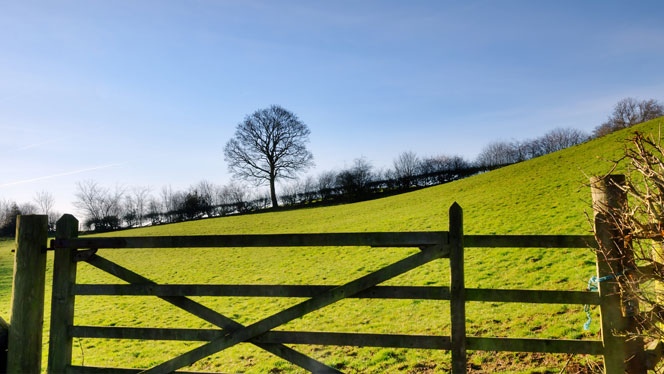Retiring to the country – 8 things to discuss before your parents decide

Moving to a rural area can be a cherished dream for retirement. But what are the pitfalls and how can they be avoided? We asked for advice from the team behind the “Over the Hill” campaign, which aims to tackle rural isolation.
Retiring to green fields after a life in the suburbs is a dream that’s been beloved for many generations.
It is a lovely idea. But even if your parents are ready for a change, they may find that the countryside is not as idyllic as they first thought.
In rural areas, not only is the ageing population growing much faster, but there are also significant additional factors to be taken into consideration – isolation, availability of suitable housing and access to financial and care services are key. How can these issues be addressed, particularly in times of financial austerity and cut-backs?
Research undertaken with 500 over-55s by The Rural Media Company as part of the “Over The Hill” campaign showed:
- 57% found the idea of moving to a rural area appealing
- A third were actively thinking of moving to a rural area in their retirement
- Many cited peace and quiet as being more important than practicalities and social/family life
- Surprisingly, nearly a quarter didn’t think active communities, proximity to family and opportunities for active social life were important
We then asked the The Rural Media Company, which over the past three years has been running the “Over the Hill” campaign to raise awareness of issues in rural ageing, to highlight the challenges that your parents could face. They suggest the major questions to ask are:
- What will you do when you can no longer drive? “Rural service deserts” means that the nearest bank, GP surgery, shop or Post Office could be miles away. Even country pubs are fewer and farther between than they were. Have you checked the local bus services? Is there a reliable dial-a-ride scheme or any other community transport such as a driver/ car scheme?
- What will you do if you want to remain independent and in your own home for as long as possible? Needing outside help may seem a long time off when you’re just retiring, but how accessible will social care, meals on wheels or medical help be if you’re living in an isolated community? What if it snows?
- Will you even find a suitable property? Smaller properties are often at a premium, and do you want to take on a large house and all its demands? The “Over The Hill” drama short highlights the issues that could present themselves when maintaining a larger house.
- If you find a home the right size, will it be suitable for your needs as you grow older? Narrow stairways and latched doors may be full of rustic charm, but could they cause problems when you’re not quite so mobile? As access BDD stairlifts points out, we need to be able to move around the home as easily as possible at any stage of our lives.
- What about the upkeep of the property? You might be happy to do it all to start with, but you may need help as time passes. Are there people around that you can employ?
- How are you going to keep warm? Many rural properties don’t have access to mainline gas and rely on deliveries of solid fuel, calor gas, oil or LPG.
- What are the chances of broadband? Or even mobile phone services? While accessibility to the Internet is improving in rural areas, it is still patchy and can be slow. The same is true of mobile reception. Without the Internet there’ll be no online ordering for a supermarket delivery, online banking, or Skyping with family and friends.
- Are there local activities and groups that you can join? Even if your parents see themselves as self-sufficient, they may in time be glad of luncheon clubs, exercise or cerebral clubs and classes, or meetings of the Parish Council to attend.
While these are important questions, the good news is that there are projects in progress to address the needs and concerns of the ageing rural population. All across England, older people are devising and delivering innovative solutions to the challenges they experience living in rural communities, in partnership with voluntary and statutory agencies.
The organisations featured in the best practice case studies of the “Over the Hill” campaign demonstrate the importance and contribution of older people to the communities in which they live. They are examples of “behind the scenes” operations that are necessary if communities are to be able to identify and meet their own needs and to participate in local governance.
“The Rural Media’s campaign is not so much against retirement to the country as wanting to make people aware of some of the difficulties – and that there are things happening now to make these less daunting. I was tremendously impressed with some of the rural schemes afoot to help people stay where they want to live.”
Mavis Cheek, English novelist
If you found this article helpful why not join the family?

